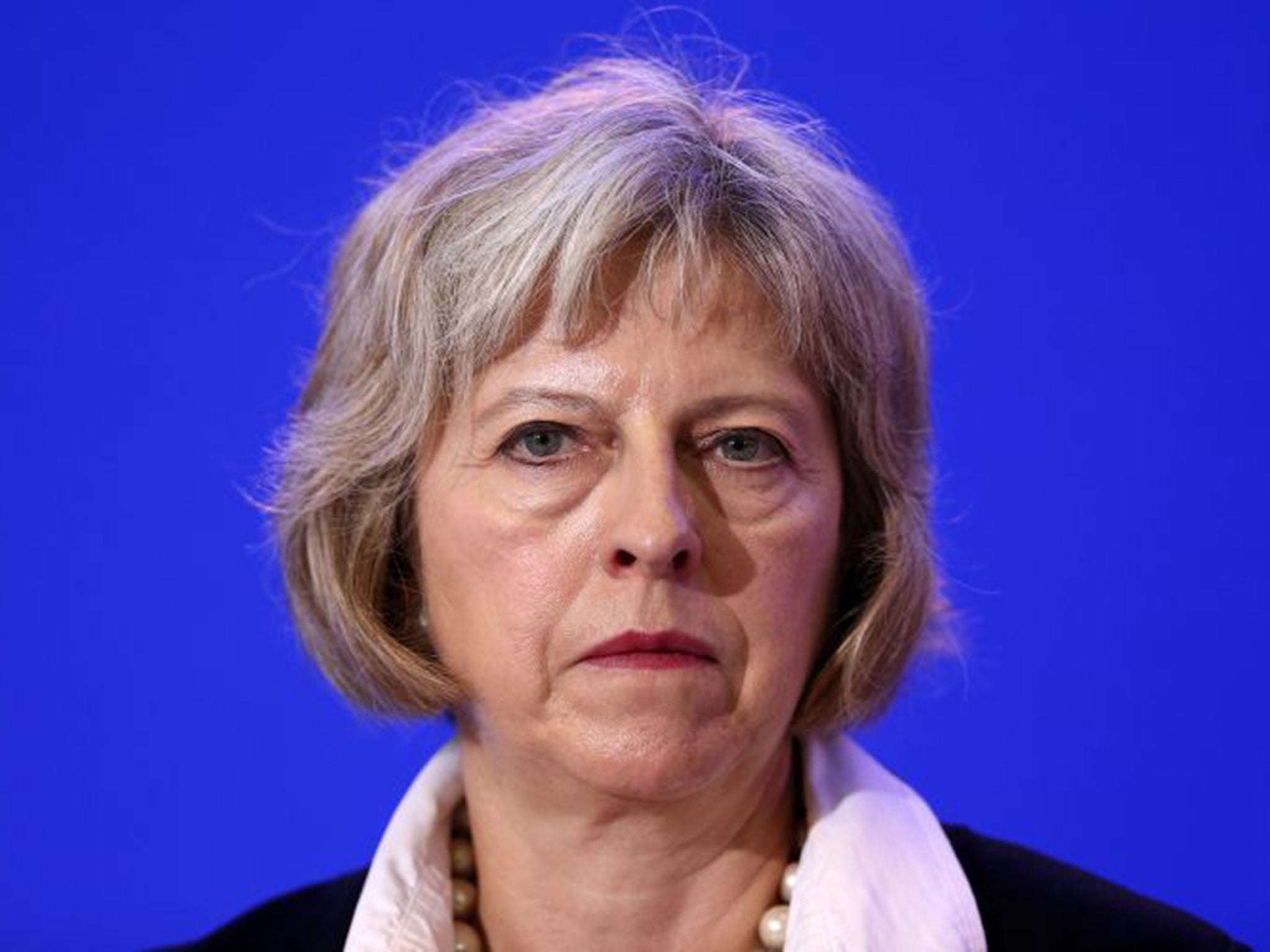Your support helps us to tell the story
From reproductive rights to climate change to Big Tech, The Independent is on the ground when the story is developing. Whether it's investigating the financials of Elon Musk's pro-Trump PAC or producing our latest documentary, 'The A Word', which shines a light on the American women fighting for reproductive rights, we know how important it is to parse out the facts from the messaging.
At such a critical moment in US history, we need reporters on the ground. Your donation allows us to keep sending journalists to speak to both sides of the story.
The Independent is trusted by Americans across the entire political spectrum. And unlike many other quality news outlets, we choose not to lock Americans out of our reporting and analysis with paywalls. We believe quality journalism should be available to everyone, paid for by those who can afford it.
Your support makes all the difference.The Home Office has refused to make Theresa May’s internet browsing history public under freedom of information rules, arguing that a request to do so is “vexatious”.
The Independent requested the Home Secretary’s work browsing history for the last week of October under the Freedom of Information Act.
Under the new Investigatory Powers Bill announced by Ms May the internet browsing history of everyone in the UK will have to be stored for a year and police and security services will be able to access the list of visited websites without any warrant.
The Home Secretary described such information, which her department refused to release in relation to her, as “the modern equivalent of an itemised phone bill". Itemised phone bills have previously been released under the Freedom of Information Act.
The Freedom of Information Act is in theory supposed to allow for information held by government bodies to be disclosed, subject to certain conditions.
On 4 November the Independent invoked the Act to ask the Home Office to disclose “‘the web browser history of all web browsers on the Home Secretary Theresa May's GSI network account for the week beginning Monday 26 October”.
The only reason given by officials against disclosure of Ms May’s browsing history was that the request for transparency was a “scattergun” approach conducted “without any idea of what might be revealed”.
If the Department had agreed to the request, it would have shown a list of websites visited on the Home Secretary’s computer account for a week.
“We have considered your request and we believe it to be vexatious. Section 14(1) of the Act provides that the Home Office is not obliged to comply with a request for information of this nature,” officials said in a response.

“We have decided that your request is vexatious because it places an unreasonable burden on the department, because it has adopted a scattergun approach and seems solely designed for the purpose of ‘fishing’ for information without any idea of what might be revealed.”
Officials were told in the request that they could exclude any information related to security matters – so that this could not be used as an excuse to deny disclosure.
The Home Office did not reply to the request within the legal deadline, but eventually provided a response refusing to release the information.
While the Government is widening its own powers to access the information of citizens, it is watering down the public’s right to access the Government’s information.
The Government has launched a review into the Freedom of Information Act, with suggestions that the transparency law could be watered down to give ministers more space to act in secret.
Commenting on the new Government spying bill in November, Shami Chakrabarti, director of civil rights campaign Liberty, said:
“After all the talk of climbdowns and safeguards, this long-awaited Bill constitutes a breath-taking attack on the internet security of every man, woman and child in our country.
“We must now look to Parliament to step in where ministers have failed and strike a better balance between privacy and surveillance.”
At the launch of the Investigatory Powers Bill in Parliament, Ms May said: “There should be no area of cyberspace which is a haven for those who seek to harm us to plot, poison minds and peddle hatred under the radar.
“But I am also clear that the exercise and scope of investigatory powers should be clearly set out and subject to stringent safeguards and robust oversight, including ‘double-lock’ authorisation for the most intrusive capabilities.
“This bill will establish world-leading oversight to govern an investigatory powers regime which is more open and transparent than anywhere else in the world.”

Join our commenting forum
Join thought-provoking conversations, follow other Independent readers and see their replies
Comments